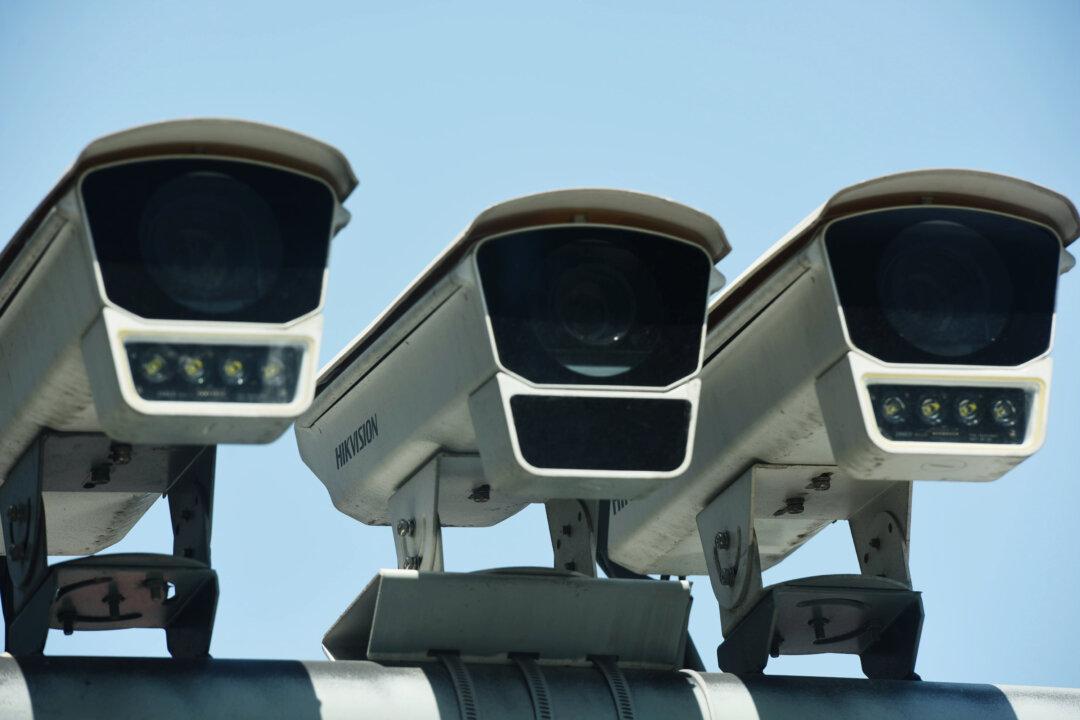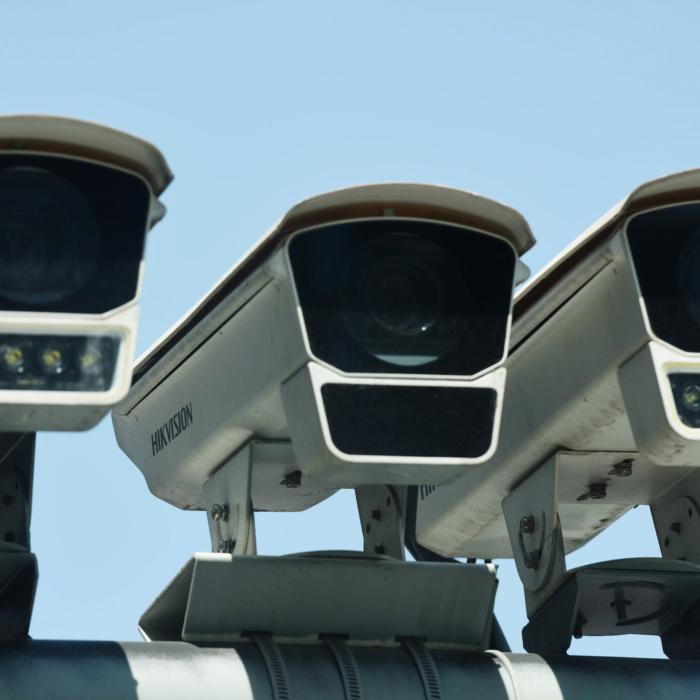Surveillance equipment made by Chinese companies will remain in use at sensitive government sites until at least April 2025, the Cabinet confirmed on Monday.
The government has said that the majority of sensitive sites had never used such equipment in the first place.
In a written statement, junior Cabinet Office minister Alex Burghart said that where it was deployed, 50 percent of that equipment had been replaced.
The removal of remaining devices at approximately 70 percent of sites will be finished by October, while all the remaining sites will get cleared no later than April 2025.
“The Government takes the security of the UK’s citizens, systems and establishments extremely seriously and we have a range of measures in place to scrutinise the integrity of our arrangements,” Mr. Burghart said.
The requirement to remove made-in-China surveillance cameras first emerged in amendments to the Procurement Act 2023. In June 2023, MPs called for the removal of equipment produced by companies subject to China’s national intelligence law.
Under the law, all organisations and citizens are required to “support, assist, and cooperate with national intelligence efforts.”
MPs also pressed for the government to set a timeline for the removal, within six months of the passage of the Procurement bill.
In his statement, Mr. Burghart said that the “work on the removal of these devices is currently ahead of schedule.”
“The Government will always keep the security of our personnel, information and estate under constant review and, again, these preventative steps were taken in line with that approach and to manage against risks materialising,” he added.
Downing Street also said it takes cyber security extremely seriously.
Hikvision
In 2022, the UK government banned the installation of new surveillance equipment from China on sensitive government sites, and more than a year later the Ministry of Defence reportedly issued guidance to not use or install Hikvision cameras.Hikvision and Dahua, two world-leading surveillance camera manufacturers ultimately controlled by the Chinese Communist Party, are the main suppliers of surveillance cameras in Xinjiang.
The cameras have also been found to have backdoors and vulnerabilities, sparking security concerns, with the United States blacklisting both companies.
The UK government has told its departments to stop installing new Chinese surveillance cameras into sensitive sites, citing security considerations, and advised them to consider replacing the existing ones before the maintenance schedule and do the same with non-sensitive sites.
Battle for Information
The government has also announced a new consultation on measures to protect UK universities from national security threats posed by foreign states.This comes after an internal government review found that foreign states target sensitive research, conducted by UK universities, to steal advantage and acquire intellectual property.
Science and Technology Secretary Michelle Donelan said that universities were on the “front lines of a battle for information.”
“This is not about erecting fences, this is about balancing evolving threats and protecting the integrity and security of our great institutions,” said Deputy Prime Minister Oliver Dowden.
The consultation will seek ways to protect cutting-edge technology from state actors trying to enhance their own economic and military capabilities.
The National Cyber Security Centre and MI5 contributed to a discussion on April 26 on threats posed by foreign states and risks facing academia.







